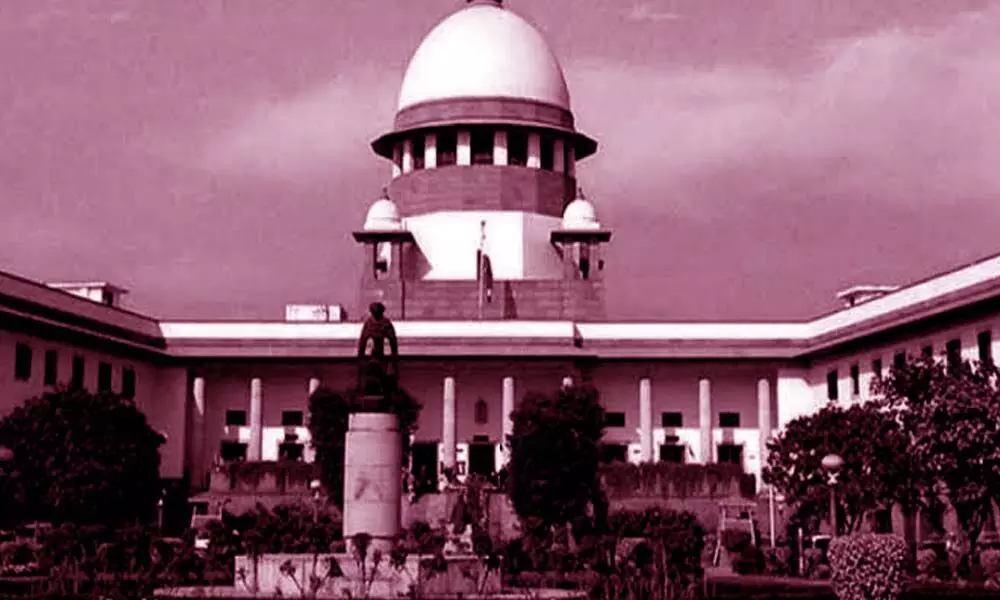Supreme Court to hear on June 29 pleas against blacklisting of foreigners for alleged Tablighi activities
 Supreme Court (file/photo)
Supreme Court (file/photo)The petitions have contended that the en-masse blacklisting of foreigners without any opportunity to defend themselves is a blatant violation of Article 21.
New Delhi: The Supreme Court on Friday decided to hear on June 29 the pleas by foreign nationals who have challenged the government orders that blacklisted around 2,500 citizens from 35 countries from travelling to India for alleged involvement in Tablighi Jamaat activities.
A bench comprising Justices A M Khanwilkar and Dinesh Maheshwari asked the counsel appearing for the petitioners to serve copies of their pleas to the Centre.
Four petitions have been filed by 34 individuals, including a Thai national who is seven months pregnant, challenging the Centre's orders on April 2 and June 4 by which over 2,500 foreign nationals, who are currently in India, were blacklisted.
"The impugned decision, by its very unilateral nature, infringes the principle of natural justice, particularly audi alteram partem' by blacklisting the said foreigners present in India without first granting an opportunity of being heard or notice of any form, and resultantly depriving the aggrieved foreign nationals of their right of locomotion and travelling back to the country of their citizenship, said the plea filed by the Thai woman.
The petitions have contended that the en-masse blacklisting of foreigners without any opportunity to defend themselves is a blatant violation of Article 21 (protection of life and personal liberty) of the Constitution.
They said the sudden blacklisting, apart from registration of FIRs, led to the forfeiture of their passports by state authorities, thereby resulting in complete deprivation of their personal liberty sans procedure established by law.
The impugned decision, therefore, has been passed arbitrarily against the aggrieved foreign nationals, being devoid of any documentary proof or evidence to substantiate the allegations of alleged Tablighi activities, and in the absence of any opportunity being afforded to defend or to explain, is an affront to not only the right to life and personal liberty, guaranteed under Article 21 but also to the rudimental principles of natural justice, the Thai woman's plea said.
She has said she was released from quarantine in late May but is still at a facility under restricted movements, without the avenue to go back to her nation and experience the birth of her child with security and dignity, with her loved ones.
In barely 50 words, the impugned decision as reflected in the press release dated April 2, 2020 has arbitrarily first forfeited the personal liberty of more than 960 foreign nationals, belonging to 35 countries, presently in India, having entered on valid tourist visas, by merely alleging their involvement in Tablighi Jamaat Activities' despite the guidelines of the Respondent No.1 (MHA) placing no bar on attending religious congregations or visiting religious places, it said.
The Respondent No. 1 (MHA) baselessly and arbitrarily passed a blanket ban on the aggrieved foreign nationals under the garb of alleged visa violations pursuant to alleged Tablighi activities, forcing such persons to remain in India under restricted movements, it said.
The plea added the decisions are based on an "erroneous presumption" equating a religious congregation with Tablighi work such as preaching religious ideologies.
It has sought direction to MHA and Ministry of External Affairs to remove the said foreigners from the blacklist and reinstate their visas and facilitate their return to their countries.















